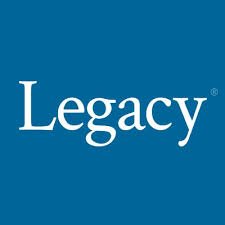Introduction
In the midst of grief, finding ways to honor and remember a loved one’s life can be incredibly comforting. Legacy obituaries offer a meaningful avenue for preserving family history, providing both personal reflection and a lasting tribute for future generations. For those in the grief support community, family historians, funeral directors, grief support groups, and funeral planners, understanding the importance and impact of legacy obituaries is crucial. This blog post will explore how to craft meaningful obituaries, the evolving role of legacy obituaries in the digital age, and the collaborative support available within the grief and funeral community.
What Are Legacy Obituaries?
Legacy obituaries are more than just a simple announcement of a person’s passing; they are detailed narratives that capture the essence of a person’s life. These obituaries go beyond basic facts, weaving stories and memories that highlight the individual’s accomplishments, passions, and personality. By incorporating personal anecdotes and reflections, legacy obituaries serve as a powerful tool for honoring a loved one’s legacy and preserving their memory for future generations.
The Transformative Power of Legacy Obituaries
Honoring Legacies
Legacy obituaries play a vital role in honoring the legacies of those who have passed. They provide a platform for celebrating a person’s life, highlighting their achievements, and sharing the impact they had on others. By including stories and memories, legacy obituaries allow family members and friends to reflect on the positive aspects of the deceased’s life, fostering a sense of gratitude and appreciation.
A heartfelt story from a grief support group member illustrates this power. After losing a close friend, the group member found solace in creating a legacy obituary that captured the friend’s vibrant personality and cherished moments. This act of remembrance brought comfort and closure to the group, allowing them to celebrate the friend’s life and find healing in the process.
Finding Closure
Crafting a legacy obituary can be a therapeutic and healing process for those who are grieving. It offers an opportunity to reflect on the life of the deceased, recounting precious memories and acknowledging their impact. This process of storytelling can provide a sense of closure and help individuals come to terms with their loss.
A funeral planner shared a touching narrative of a family who found healing through the process of creating a detailed and meaningful obituary for their loved one. By focusing on the positive aspects of the deceased’s life and sharing stories of joy and love, the family was able to find comfort and closure during a difficult time.
Preserving Family History
Legacy obituaries serve as valuable records for family historians, providing a wealth of information about an individual’s life and their place within the family lineage. These detailed accounts often include vital statistics, personal anecdotes, achievements, and even the challenges faced by the individual. By delving into these documents, family historians can uncover untold stories that offer a deeper understanding of one’s heritage and illuminate the broader social and historical contexts in which their ancestors lived.
One family historian, motivated by a desire to connect with their roots, embarked on a journey to uncover the untold stories of their ancestors through legacy obituaries. They meticulously pieced together the narratives of past generations, often discovering surprising connections and long-forgotten family ties. Through this process, they gained a newfound appreciation for their heritage, feeling a deeper connection to the lives and experiences of those who came before them. This journey not only enriched their personal identity but also contributed to the preservation of family history for future generations.
Crafting Meaningful Legacy Obituaries
Choosing the Right Words
When crafting a legacy obituary, choosing the right words is essential. It’s important to strike a balance between factual information and heartfelt storytelling. Start with a brief introduction that includes the person’s name, age, and date of passing. Then, highlight key aspects of their life, such as their accomplishments, hobbies, and passions.
For example, instead of simply stating that the deceased enjoyed gardening, you could write, “Jane had a green thumb and spent countless hours tending to her beautiful garden, which was admired by neighbors and friends alike.”
Incorporating Personal Anecdotes
Personal anecdotes add depth and richness to a legacy obituary. These stories provide a glimpse into the individual’s personality and the impact they had on others. Reach out to family members and friends to gather anecdotes and memories that capture the essence of the deceased.
A funeral director shared the powerful impact of collaborating with families to write obituaries that captured the essence of a loved one’s legacy. By including anecdotes and stories, they were able to create obituaries that truly honored the individual’s life and brought comfort to the grieving families.
Highlighting Achievements and Passions
Legacy obituaries should celebrate the achievements and passions that defined the individual’s life. Whether it’s their career accomplishments, volunteer work, or hobbies, these details paint a fuller picture of who they were.
For instance, instead of merely stating that the deceased was a teacher, you could write, “John dedicated his life to education, inspiring countless students with his passion for learning and his unwavering commitment to their success.”
The Digital Age of Legacy Obituaries
Sharing Obituaries Online
In the digital age, legacy obituaries can reach a wider audience through online platforms. Many funeral homes and memorial websites offer the option to create and share obituaries online, allowing friends and family from around the world to access and contribute to the tribute.
Creating Lasting Memorials
Digital legacy obituaries also provide an opportunity to create lasting memorials. Websites and social media platforms dedicated to memorializing loved ones allow for the preservation of photos, videos, and messages, creating a digital archive that can be revisited and shared for years to come.
Fostering Community and Connection
The digital age has also fostered a sense of community and connection among those who are grieving. Online platforms and social media groups provide spaces for individuals to share their stories, offer support, and find solace in knowing they are not alone in their grief.
A member of a grief support group found comfort in creating a digital legacy obituary for a lost friend. By sharing the obituary online, they were able to connect with others who had known the friend and receive messages of support and shared memories from around the world.
Collaborative Support in Crafting Legacy Obituaries
Working with Funeral Directors
Funeral directors play a crucial role in helping families craft meaningful legacy obituaries. Their experience and expertise can guide families through the process, ensuring that the obituary captures the essence of the deceased’s life and provides comfort to those who are grieving.
Joining Grief Support Groups
Grief support groups offer a supportive community for individuals who are navigating the process of creating a legacy obituary. These groups provide a safe space to share stories, seek advice, and find comfort in the shared experience of loss.
Utilizing Resources and Tools
There are numerous resources and tools available to assist in crafting legacy obituaries. Websites, books, and online courses offer guidance on writing obituaries, gathering anecdotes, and creating lasting tributes.
The Role of Community in Honoring Legacy
Community plays a vital role in honoring and preserving the legacy of the deceased through Legacy Obituaries. Local community centers, places of worship, and social organizations often offer support and create spaces for collective remembrance. Engaging in community commemorations, such as memorial services or tribute events, helps to reinforce the individual’s impact on the community and brings people together to celebrate their life.
A community leader shared an example of an annual memorial event where residents come together to remember and honor those who have passed. Attendees bring photos, share stories, and contribute to a collective legacy that pays homage to the enduring spirit of their loved ones. This event not only preserves memories but also strengthens community bonds.
The Therapeutic Power of Writing Obituaries
Writing an obituary is not only a means to commemorate a loved one but also a therapeutic process for those grieving. Crafting Legacy Obituaries allows for reflection on the relationship shared with the deceased, providing an outlet for expressing emotions and processing the loss. This act of writing can be a cathartic experience, helping individuals navigate their grief journey.
A psychotherapist emphasized the healing potential of writing Legacy Obituaries in their practice. They encouraged clients to engage deeply with the memories and stories that define their loved one’s life, noting that this process often leads to significant emotional relief and a better understanding of their own grief.
Conclusion
Legacy obituaries are a powerful tool for preserving family history, honoring loved ones, and finding closure in the grieving process. By crafting meaningful and detailed obituaries, individuals can celebrate the lives of those who have passed and create lasting tributes for future generations. Whether through personal anecdotes, highlighting achievements, or leveraging digital platforms, legacy obituaries offer a way to connect with the past and foster a sense of community and support.
For those seeking assistance in creating legacy obituaries, the grief and funeral community offers a wealth of resources and collaborative support. By working with funeral directors, joining grief support groups, and utilizing available tools, individuals can find comfort and guidance in the process of crafting these meaningful tributes.
If you’re looking to create a legacy obituary that truly honors your loved one’s life, consider reaching out to a funeral director or joining a grief support group. Together, we can ensure that the legacies of our loved ones live on, providing comfort and connection in times of loss.





